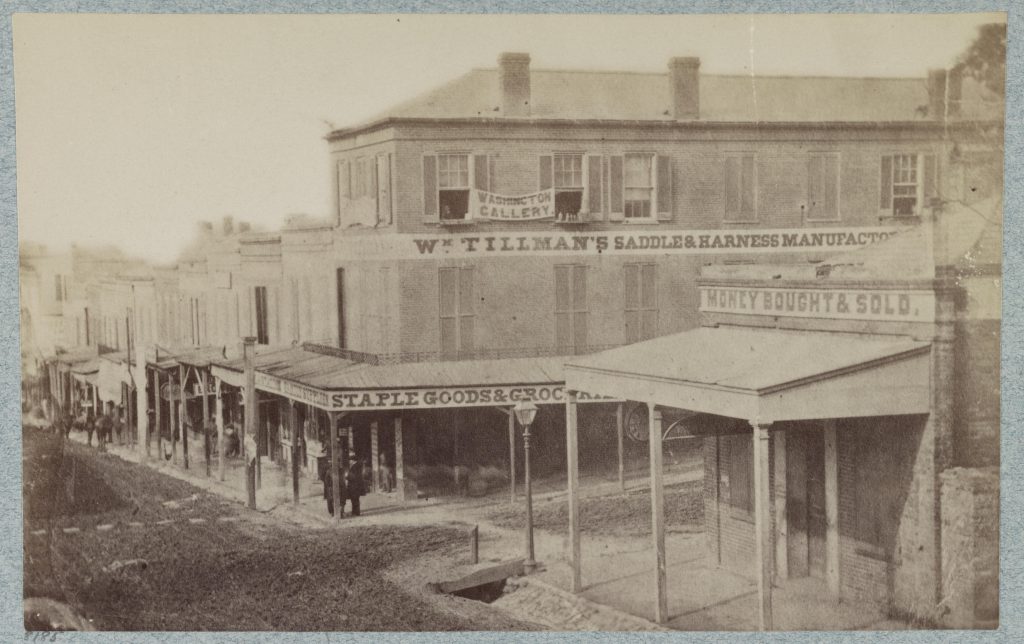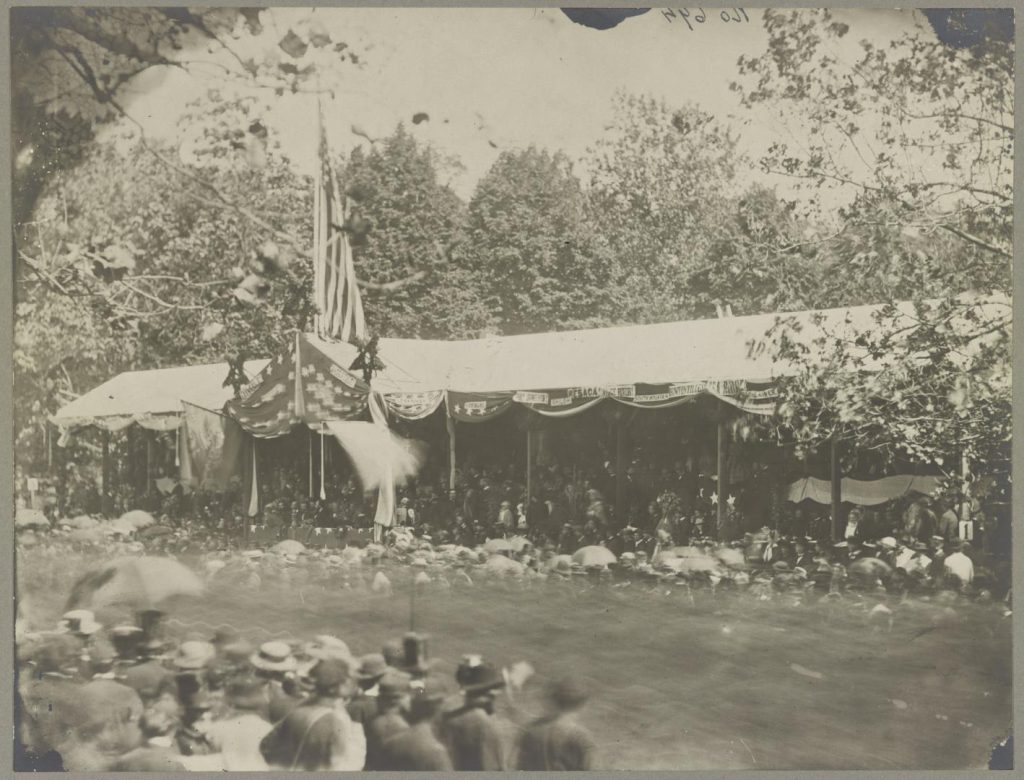Research Arsenal Spotlight 34: Farner Shaw 4th Minnesota Infantry
Farner Shaw was born in Dane County, Wisconsin, in 1844 to Henry W. Shaw and Susan J. (Sunderman) Shaw. The family moved to Freeman, Minnesota sometime before 1860. He enlisted as a private in Company F, 4th Minnesota Infantry in February, 1862. He was later promoted to corporal.
The twelve letters in our Research Arsenal collection were written by Farner Shaw to various cousins in the Waldruff family. All of them were the children of Jacob Waldruff and Eliza (Sunderman) Waldruff.
Farner Shaw vs the Copperheads
On September 1, 1862, Farner Shaw wrote the first letter in our collection to William H. Waldruff. Despite having enlisted in February, this letter appears to be the first he sent to his cousin, William.
“Dear cousin, I am now in the service of our country which is a holy and a just cause but I can tell you that it is hard to be a soldier — hard living. But thank God it can’t last long and when it is done, we will see each other once more if we live to see that day and I hope that we will.”
While Farner Shaw’s patriot fervor is evident in this first letter, in a letter written April 11, 1863, his ire had turned to the Copperheads in the north who he believed were at fault for prolonging the war.
“I tell you, I would like to have this war ended and get home but I don’t think that it will as long as there is so many copperheads as you know and peace cryers in the North as there is now. The South would have given up long ago if it hadn’t of been that they saw the North a crying for peace and that the North was a dividing and they never will give up as long as there is such business a going on in the North as there is now.
I hope that every devilish copperhead will get drafted. There is nothing but the poor class that is a fighting this war and the rich ones is at home a filling their pockets of what the poor men send home to their family and give them nothing for it. And they will sit in their stores or taverns and smoke their cigars and say, ‘Let them poor devils fight it out.’ Them is the men I would like to see come into the ranks and shoulder their muskets and live on hard bread for one or two years.”
The 4th Minnesota Infantry and the Vicksburg Campaign

The 4th Minnesota Infantry participated in the expedition to Yazoo Pass as well as the fighting at Fort Pemberton. It was then involved in the Siege of Vicksburg. Throughout this time, the 4th Minnesota Infantry saw its strength much reduced. On June 12, 1863, Farner Shaw wrote to his cousin, Mary Jane Waldruff.
“We are laying in the hollows close to Vicksburg.
And now I will tell you how our regiment has changed since we came south. When we first come south, we had nine hundred and 62 men, and now we have got 2 hundred and 54 men left and I don’t think that there has been over a hundred and fifty that has had their discharge. I tell you that any man that gets out of this war safe and sound is a lucky fellow.”
The Union Army’s success at Vicksburg enhanced the 4th Minnesota Infantry’s reputation. While in Alabama in December, 1863, Farner Shaw wrote about Confederate soldiers being afraid to face “Vicksburg Veterans.”
“We have been a marching for the last two month. We marched from Corinth to Chattanooga and there we got in another little fight. We had hard work to get at them but when we did, we made them get up and skedaddle. They said that when they found that we was the Vicksburg Veterans, that they wouldn’t stand and get killed and taken prisoners. And after we had drove them out, we followed them 15 miles and then went back and we had so many prisoners that we had to go without anything to eat. We stayed there 4 days and then we started to come here and all I had for breakfast was a little corn meal. And we marched 23 miles and then had nothing to eat and then we got a little in the morning and started and got here. And I tell you, if there ever was a hungry division, it was this one—hungry and worn out. And we think we will have to go to Memphis and go in our old army corps and then go down to Mobile.”
Starvation in the South
After reenlisting as a veteran, Farner Shaw continued his service in the 4th Minnesota Infantry. The 4th Minnesota Infantry moved down to Allatoona, Georgia in the summer of 1864 and spent several months on garrison duty. While there, Farner Shaw observed the difficulties the people of the south had in obtaining food and other necessities. He wrote to his cousin, Jemima Waldruff, about it in a letter dated July 29, 1864.
“We have very dry weather here now and very warm and we are in one of the worst places that we ever was camped in. We can’t see anything but mountains and I tell you, it is lonesome here and if it wasn’t for the ladies, I don’t know what I would do. There is about 300 comes in here every day a peddling blackberries and milk and butter and apples. I tell you, they are hard up. Some of them come as far as ten miles. They want to trade for something to eat. I tell you that we have great times with them. Milk is 1 dollar a gallon and butter 50 cents per pound and we sell our rations according and if this war don’t stop, there is a going to be a great many of them that will starve.”
By March, 1865, the situation was still dire, with little food for soldiers and civilians both. Farner Shaw wrote to Jemima again saying,
“I can tell you that we have had a hard time this winter coming through the little confederacy. We couldn’t get no mail nor nothing to eat — only what we got out of the country. I tell you that there is lots of poor women and children that will starve to death. Some of the soldiers got so hard-hearted that they took the last thing away from the women. I tell you, it is hard to see some of them with little children and not a mouthful of anything to eat and nowhere to get any. What is such people a going to do? And there is lots of such South yet for the soldiers had a grudge against South Carolina and they took revenge well.
What do you think about the war? I will tell you what I think. I think that the war will be at an end inside of four months. The fearful noise of the western arms—the heroes that has cleaned the rebels out of the West—and we have marched 8 hundred miles and are ready to march eight hundred more.”
Farner Shaw has a Close Call

While Lee’s surrender on April 9, 1865, is generally considered the end of the Civil War, sporadic fighting continued for several months more. On April 15, 1865, Farmer Shaw had a very close call when he ran into a pocket of Confederate forces under command of General Wheeler. He recounted the incident in a letter written on April 28.
“You said you didn’t know whether that letter would reach me or not. I tell you, dear cousin, it came very near not to reach me. I have tried a prisoner’s life. I will tell you a little about it. On the 15th day of this month, I and 2 more good men went out in the country to get some horses for our company and we got most too bold and went out too far. And as we was in a little town and one of my noble comrades was fixing his saddle, there was 18 of General Wheeler’s Cavalry came around the other corner and we did not see them until they got right up to us and they commenced shooting at us and one of my partners run and he got away and they shot the other fellow in the leg and I started to get away and 8 of the cowardly dogs took after me a firing as hard as they could. But as good luck and the will of God, they did not hit me, and if you ever saw a horserace, that beat them all. I was bound to get away or die. They run me one mile and a half and then my luck turned. They shot my horse 3 times and he commenced to reel and they—8 men—come all around me and told me to surrender or they would kill me. And then they went at me and took everything away from me and took me along with them and kept me one day and one night and then paroled me. Although I shan’t stop doing my duty, I won’t.”
Farner Shaw mustered out in July, 1865 and returned home. He married Juliet Flemming in 1868 and the couple had 5 children. He and his family later moved to Iowa where Farner worked as a farmer. He died in 1923.
We’d like to give a special thanks to William Griffing of Spared & Shared for his work in transcribing and sharing these letters.
To read more of Farner Shaw’s letters as well as access thousands of other Civil War letters and documents, sign up for a Research Arsenal membership.
If you enjoyed this article, check out some of our other featured collections, like William Clemmons of the 7th Tennessee Infantry and Henry Markham of the 2nd Illinois Cavalry.

